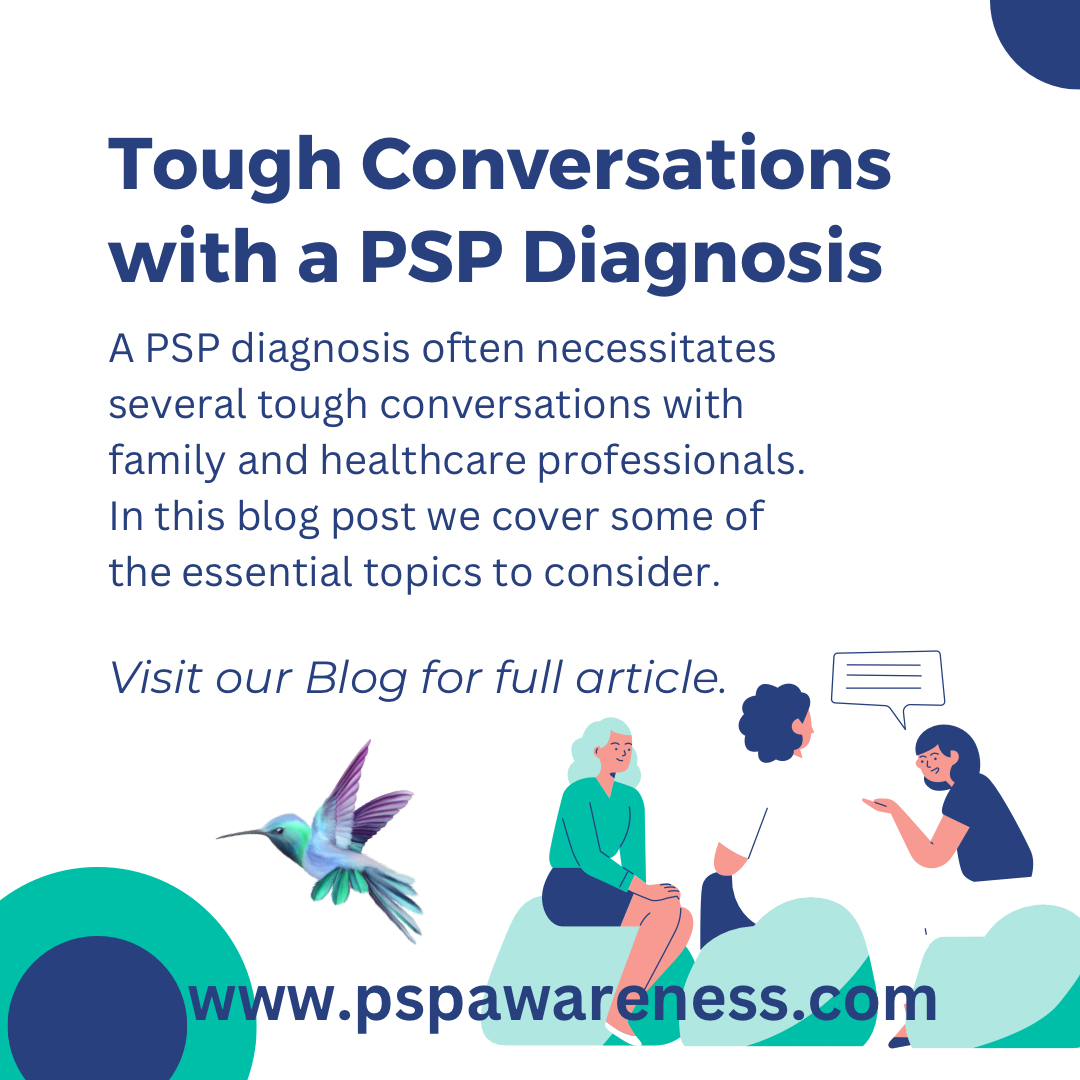
Tough Conversations with a PSP Diagnosis
Feeding Tube Decision:
- Why it's important: As PSP progresses, swallowing becomes a challenge. A feeding tube can ensure the patient receives adequate nutrition and hydration.
- Key points to discuss: The procedure's risks and benefits, the possible impacts on quality of life, and alternative feeding methods.
Medical Assistance in Dying (MAID):
- Why it's important: Some individuals, in their desire to have control over the course of their disease, might consider the option of assisted dying.
- Key points to discuss: The legal and ethical considerations, personal beliefs and feelings about the topic, and the potential emotional impact on family members.
Power of Attorney (POA) for Health and Finances:
- Why it's important: As cognitive abilities may decline, it becomes essential to designate someone trustworthy to make healthcare and financial decisions.
- Key points to discuss: The scope of the POA's authority, the individual's wishes and boundaries, and the choice of a reliable person to act as the POA.
End-of-Life Care:
- Why it's important: Discussing preferences for end-of-life care ensures that the individual's wishes are respected and can offer peace of mind to loved ones.
- Key points to discuss: The choice between hospice and hospital care, pain management, desired interventions (or lack thereof), and any spiritual or personal rituals that are significant.
Concluding Thoughts:
A diagnosis of Progressive Supranuclear Palsy can be overwhelming for both the individual and their loved ones. While these conversations are undeniably challenging, they are vital in ensuring that the person's wishes are honored, and their well-being is prioritized. Approaching these topics with sensitivity, compassion, and openness can pave the way for more informed decision-making and a supportive journey ahead.

 Donate
Donate




3 comments
A close friend has just had an MRI confirming this diagnosis.
As a retired paediatric surgeon I
congratulate you on your article.
Yes it is Tim. As tough as it is, it offers peace ultimately. Hope you are doing ok!
It is a tough conversation. Nevertheless, it’s one we have to have… the sooner, the better.